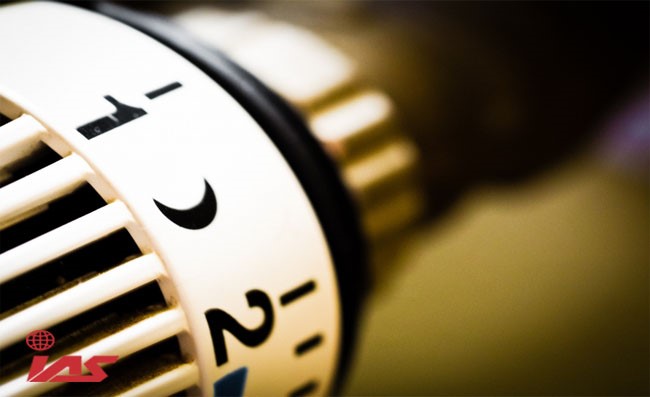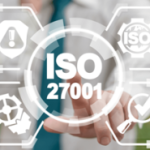If you’re a business looking to expand your products or services into the Russian market, you’ve likely come across the term “GOST R Certification.” This certification is not only a legal requirement but also a crucial factor for ensuring the quality and safety of your products in Russia. In this comprehensive guide, we’ll delve into the world of GOST R Certification, demystify the process, and provide valuable insights to help you navigate this essential aspect of international trade successfully.
Understanding GOST R Certification
GOST R Certification, also known as the Russian Certification System, is a set of mandatory quality and safety standards established by the Russian government. It plays a pivotal role in ensuring that products and services entering the Russian market meet specific criteria for quality, safety, and compliance with national regulations.
The history of GOST R Certification dates back to the early 20th century when the Soviet Union introduced the GOST (State Standard) system to regulate product quality. Over time, these standards have evolved, and the GOST R Certification system, introduced in 1993, became a crucial part of Russia’s commitment to product quality and consumer protection.
The importance of GOST R Certification cannot be overstated. It serves as a guarantee of product quality and safety for Russian consumers. Without proper certification, products may be barred from entering the Russian market, resulting in significant financial losses for businesses. Additionally, having GOST R Certification can enhance a product’s marketability in Russia, as consumers and business partners often prioritize certified goods due to their perceived higher quality and safety standards.
Benefits of GOST R Certification
GOST R Certification offers a multitude of benefits that can significantly impact your business’s success and reputation in the Russian market. Let’s delve deeper into these advantages to understand why obtaining GOST R Certification is a wise investment:
- Enhanced Marketability: Products bearing the GOST R Certification mark are seen as meeting stringent quality and safety standards. This distinction can give your products a competitive edge in the Russian market, as consumers often prefer certified goods, leading to increased sales and market share.
- Access to the Russian Market: Many products are required to have GOST R Certification to enter the Russian market legally. Without it, you may face barriers to entry, which can hinder your business’s expansion and profitability in this vast market.
- Legal Compliance: GOST R Certification ensures your products comply with Russian regulations and standards. This not only prevents legal issues but also safeguards your brand’s reputation by demonstrating your commitment to adhering to local laws.
- Customer Trust: Consumers in Russia place a high value on safety and quality. GOST R Certification signals to customers that your products meet these expectations, building trust and loyalty among your target audience.
- Reduced Risk: Certification helps mitigate risks associated with product recalls, liabilities, and safety issues. It minimizes the likelihood of product-related accidents or health concerns, protecting both your customers and your business.
- Global Expansion: GOST R Certification can also open doors to other markets in the Eurasian Economic Union (EAEU) where similar certification systems are recognized, facilitating your international expansion efforts.
- Partnership Opportunities: Many Russian businesses and government agencies prefer to collaborate with certified partners. GOST R Certification can help you forge valuable partnerships and secure government contracts.
- Competitive Advantage: Having GOST R Certification demonstrates your commitment to quality, setting you apart from competitors who may not have obtained this certification. This can be a crucial factor in industries where product safety and quality are paramount.
GOST R Certification is not just a legal requirement but a strategic move that can boost your product’s marketability, enhance customer trust, and open up new opportunities for growth and expansion. It’s an investment that pays off by ensuring your products meet the rigorous standards expected in the Russian market, ultimately benefiting your bottom line and reputation.
The Certification Process Demystified
The GOST R Certification process, although vital, can indeed appear intricate and challenging to businesses seeking to navigate it for the first time. In this section, we’ll demystify the certification journey by breaking it down into manageable steps, shedding light on key components, and providing clarity for a better understanding:
- Preparation and Documentation: The process begins with thorough preparation. You’ll need to gather and organize the required documentation, which typically includes product specifications, technical drawings, safety data, and manufacturing processes. Understanding the specific documentation needs for your product is crucial.
- Testing and Evaluation: GOST R Certification often necessitates product testing to ensure compliance with Russian standards. Accredited laboratories carry out these tests to verify factors such as safety, quality, and conformity. Understanding the testing requirements for your product category is essential.
- Audit and Assessment: Certification bodies, authorized by the Russian government, conduct audits and assessments of your production facilities to ensure they meet the necessary quality control standards. These assessments are critical in determining whether your manufacturing processes align with certification requirements.
- Submission and Review: Once all documentation is prepared, and testing and assessments are complete, you’ll submit your application to a recognized certification body. They will review your materials and conduct a thorough evaluation to confirm compliance.
- Certification Mark: Upon successful evaluation, you will receive the GOST R Certification mark, indicating that your product meets the required standards. This mark can be affixed to your products, showcasing their certification.
- Ongoing Compliance: It’s important to note that GOST R Certification isn’t a one-time effort. Regular audits and re-evaluations may be required to ensure continued compliance with evolving standards.
- Legal Obligations: Once certified, you must maintain compliance with Russian regulations and standards. Any changes to your product or production processes should be reported to the certification body to ensure ongoing adherence.
Understanding these steps and the role of certification bodies in the process is essential for a smooth certification journey. While it may seem complex at first glance, breaking it down into manageable stages allows businesses to approach GOST R Certification with confidence, ensuring that their products meet the necessary quality and safety standards for the Russian market.
Key Steps to Achieve GOST R Certification
Achieving GOST R Certification is a strategic undertaking that demands meticulous planning and precise execution. To guide you through this complex process, we’ve crafted a comprehensive roadmap that comprises actionable steps, ensuring you can efficiently navigate your way to successful certification. Here’s a breakdown of key elements to consider:
- Assessment of Certification Needs: Start by determining whether GOST R Certification is mandatory for your product category in the Russian market. Understanding the specific requirements and standards applicable to your product is essential.
- Documentation Compilation: Gather all the necessary documentation, including technical specifications, safety data, and manufacturing procedures, in accordance with Russian standards. Ensure your documents are accurate, complete, and well-organized.
- Product Testing: Identify accredited testing laboratories and initiate product testing to assess compliance with Russian regulations. The results of these tests will be pivotal in your certification process.
- Selecting a Certification Body: Choose a recognized certification body authorized to perform GOST R Certification assessments. This step is crucial, as the certification body’s expertise and reputation play a significant role in the process.
- Audit and Evaluation: Prepare your production facilities for audits and assessments by the chosen certification body. Ensure that your manufacturing processes align with the required quality control standards.
- Application Submission: Submit your application, along with all supporting documents and test results, to the certification body. Be prepared for a comprehensive review.
- Certification Mark Usage: Upon successful evaluation, you’ll receive the GOST R Certification mark, which you can affix to your products. Ensure compliance with the guidelines for displaying the mark correctly.
- Ongoing Compliance: Maintain your commitment to adhering to Russian regulations and standards post-certification. Regularly update your certification body on any changes to your products or manufacturing processes.
- Recertification and Updates: Be aware that GOST R Certification may require periodic recertification and updates to remain compliant with evolving standards and regulations.
By following this roadmap, you can approach GOST R Certification with confidence, knowing that you have a clear plan of action in place. This structured approach will help streamline the process, reduce the potential for errors, and ultimately lead to successful certification for your products in the Russian market.
Overcoming Common Challenges
While GOST R Certification is crucial for accessing the Russian market, it does present businesses with several common challenges. Understanding these challenges and having strategies to overcome them is essential for a smooth certification process. Here, we’ll delve into some of the most prevalent obstacles and how to address them effectively:
- Language Barriers: Dealing with documentation in the Russian language can be daunting. To overcome this challenge, consider hiring a qualified translator or working with a consultant who is proficient in Russian and knowledgeable about the certification process. They can help ensure accurate translation and facilitate communication with certification bodies.
- Complex Documentation: The extensive documentation required for GOST R Certification can overwhelm businesses. To tackle this challenge, create a meticulous document management system. Organize and maintain all relevant records, making them readily accessible for certification submissions and audits.
- Testing Costs: Product testing can be expensive, especially for complex or specialized products. Carefully budget for these costs and seek quotations from accredited testing laboratories. Exploring partnerships with industry associations or seeking government grants may also help offset testing expenses.
- Regulatory Changes: Russian regulations and standards can change over time, potentially affecting your certification. Stay informed by regularly monitoring updates from regulatory authorities and certification bodies. Adapt your processes and documentation to align with any new requirements promptly.
- Audits and Assessments: Preparing for audits and assessments can be time-consuming and stressful. Develop a comprehensive internal audit system to regularly assess your production processes. This will help you identify and rectify issues before certification bodies conduct their assessments.
- Timeline Constraints: The certification process may take longer than expected, which can impact product launch schedules. Plan for delays in your market entry timeline to account for potential hold-ups during certification.
- Local Representation: Having a local presence in Russia or partnering with a local representative can be advantageous. They can navigate local regulations, facilitate communication with authorities, and provide insights into the Russian market.
By acknowledging these challenges and implementing proactive strategies, you can position your business for success in obtaining GOST R Certification. Overcoming these obstacles demonstrates your commitment to quality and safety, ultimately benefiting your market presence and customer trust in the Russian market.
Looking Ahead: The Future of GOST R Certification
In the ever-evolving landscape of global trade and industry, certification standards, including GOST R Certification, are not static entities. They adapt and transform to address emerging challenges, technological advancements, and shifting consumer expectations. In this final section, we’ll delve into the future trends and developments in GOST R Certification, emphasizing the importance of staying ahead of these changes to ensure your business’s continued competitiveness in the Russian market.
Future Trends in GOST R Certification:
- Digitalization and Data Integration: The certification process is likely to become more digitally driven, with an emphasis on electronic documentation, data integration, and real-time reporting. Businesses should prepare for a smoother and more streamlined certification experience.
- Sustainability Standards: As global concern for the environment grows, there may be a greater emphasis on sustainability criteria within GOST R Certification. Understanding and incorporating environmentally friendly practices can enhance your certification journey.
- Harmonization with International Standards: Russia’s alignment with international standards bodies may lead to increased harmonization between GOST R Certification and global standards. This could simplify compliance for businesses with a global presence.
- Technological Advancements: Emerging technologies such as block chain and artificial intelligence may play a role in certification processes, enhancing transparency and traceability in supply chains.
- Industry-Specific Standards: Certification requirements are likely to become more tailored to specific industries. Staying informed about these industry-specific standards is crucial for success.
In conclusion, GOST R Certification is a dynamic process that reflects the changing landscape of the Russian market and global trade. By keeping an eye on these future trends and developments, your business can adapt, remain competitive, and continue to meet the high standards expected by Russian consumers.
Throughout this comprehensive guide, we’ve provided you with the knowledge, insights, and practical tips necessary to embark on a successful journey toward GOST R Certification. With careful preparation, a commitment to quality, and the determination to stay informed about evolving standards, your business can not only achieve GOST R Certification but also thrive in the Russian market, tapping into its vast potential for growth and success.
Relevant links and reference for this GOST R Certification
- Federal Agency on Technical Regulating and Metrology (Rosstandart):
- The official website of Rosstandart, the Russian federal agency responsible for standardization and certification.
- Website: https://www.gost.ru/
- International Accreditation Forum (IAF):
- IAF provides information on global accreditation and certification bodies.
- Website: https://www.iaf.nu/
- Standards Developing Organizations (SDOs):
- International standards organizations such as ISO (International Organization for Standardization) and IEC (International Electrotechnical Commission) develop standards that may relate to GOST R Certification.
- ISO Website: https://www.iso.org/
- IEC Website: https://www.iec.ch/
- Trade Associations and Consultancies:
- Organizations that specialize in international trade and certifications often provide valuable resources and information on GOST R Certification.
For the most current and specific information regarding GOST R Certification, including updates and changes in standards and regulations, It is recommend visiting the official websites of relevant governmental agencies, certification bodies, and standards organizations or consulting with experts in the field of international trade and certification. Additionally, it’s advisable to refer to recent publications, articles, and industry reports for the latest insights into GOST R Certification and its impact on businesses.


